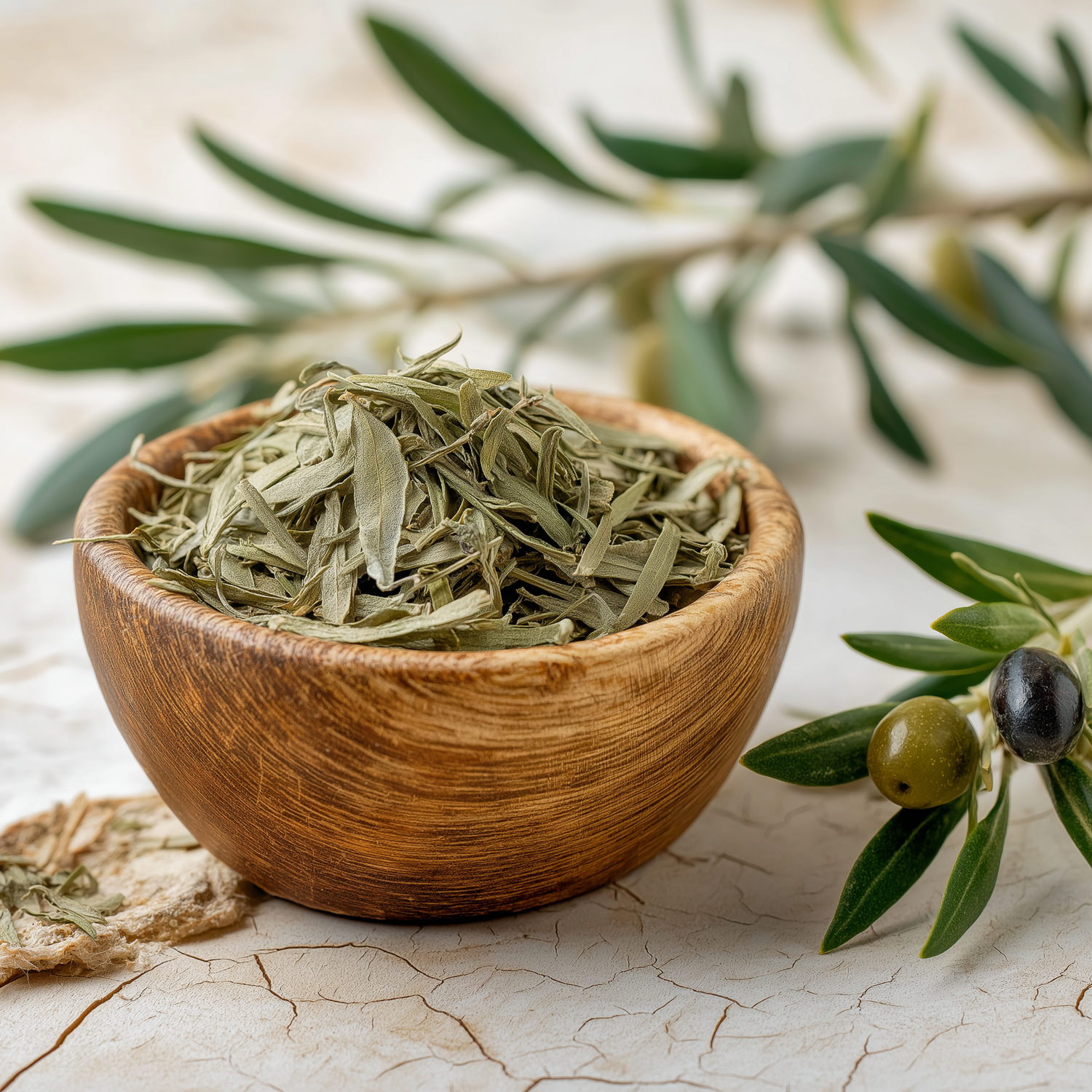
Olive leaf extract (Olea europaea) – Oleuropein content
The olive tree (Olea europaea) is one of the oldest cultivated plants in the Mediterranean region. In addition to its fruits and olive oil, its leaves have also been used for a long time. They contain secondary plant substances, particularly the polyphenol oleuropein, which is the subject of intensive scientific research.
Botanical characteristics
The olive tree belongs to the olive family (Oleaceae) and can live for several hundred years.
- Leaves: oblong, dark green above, silvery-grey below
- For extract production: mostly young leaves, as they are particularly rich in polyphenols
Ingredients
Olive leaf extract contains among other things:
- Oleuropein (bitter polyphenol)
- Hydroxytyrosol
- Flavonoids (e.g. luteolin, rutin)
- Phenolic acids
- Triterpenes
- Essential oils
Our product Oleosan (advertisement):
- Branded raw material Benolea®
- Per daily dose (2 capsules): 1050 mg olive leaf extract with 168 mg oleuropein (standardized)
Traditional use
Olive leaves were used in ancient times as an infusion or powder – traditionally to support general well-being. They are still considered a component of a polyphenol-rich diet today.
These instructions are based on traditional knowledge and are not approved
Health Claims .
Modern use (advertising)
Olive leaf extracts are now used in dietary supplements to supplement individual polyphenol intake as part of a varied diet.
Our product: Oleosan
– with 168 mg oleuropein per daily dose (2 capsules).
Dietary supplement – not a medicine.
Scientific studies (general information)
These publications are for general information only.
Information and should not be understood as healing statements:
- Olive leaf extract improves blood pressure in borderline hypertensive monozygotic twins. European Journal of Nutrition (2016).
- The pharmacological effects of oleuropein. Journal of Nutritional Biochemistry (2015).
- Effects of polyphenol-rich olive leaf extract on lipid profiles and insulin sensitivity. Phytomedicine (2017).
Instructions for use
- Food supplements are not a substitute for a balanced diet
- Not intended to treat, cure or prevent any disease
- If you have any health problems, please seek medical advice
- For pregnant women, breastfeeding women and children: Take only after consultation with a medical professional
Frequently Asked Questions (FAQ)
What is oleuropein?
A bitter-tasting polyphenol from the leaves of the olive tree.
How is olive leaf extract produced?
The leaves are dried and extracted using standardized procedures to ensure consistent quality.
What is the oleuropein content in your product?
Each daily dose (2 capsules) contains 168 mg of oleuropein in the branded raw material Benolea®.
Can olive leaf extract have side effects?
It is generally considered well-tolerated. Those with existing allergies to olive products should seek medical advice beforehand.
Legal notice
This article is for general information purposes only. No approved health claims are available for olive leaf extract and oleuropein under EU Regulation (EC) No. 1924/2006.
Transparency notice
The product mentions in this article refer to products from our own range.
We generate revenue through the sale of these products. Disclosures pursuant to Section 5a of the German Unfair Competition Act (UWG) and Section 3 of the German Commercial Code (HWG).